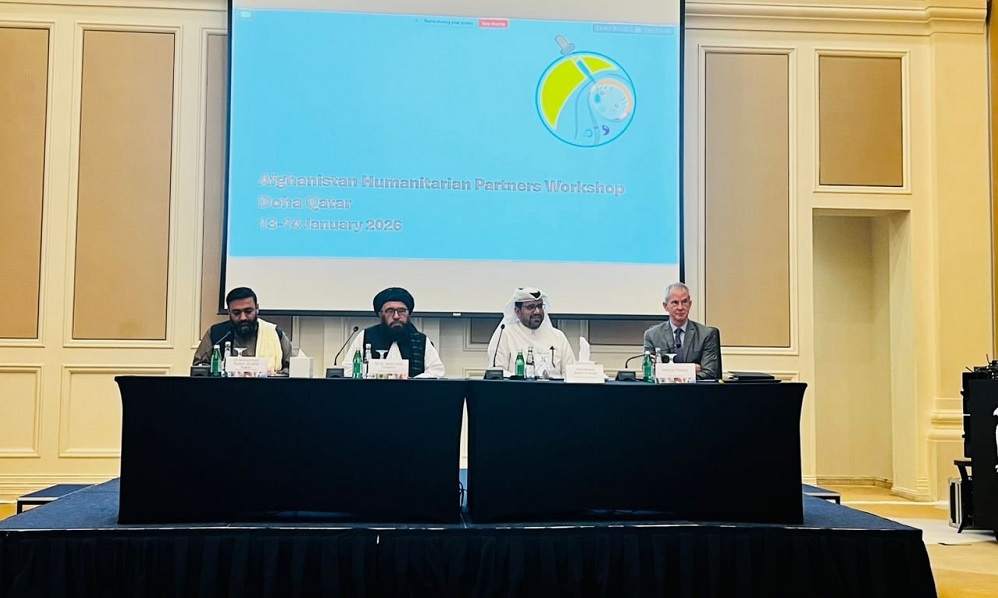Health
WHO says infertility affects 1 in 6 globally, calls for more consistent data

About one in six adults globally have experienced infertility at least once in their life, the World Health Organization (WHO) said in a report on Monday, urging countries to actively collect more consistent data on the disease, Reuters reported.
The report analyzed existing studies conducted from 1990 to 2021 and showed that about 17.5% of adults across the world were affected by the inability to have a child. WHO officials said the report takes into account several research approaches.
“The sheer proportion of people affected show the need to widen access to fertility care and ensure this issue is no longer sidelined in health research and policy,” said the U.N. health agency’s chief, Tedros Adhanom Ghebreyesus.
The WHO defines infertility as a disease of the male or female reproductive system that is defined by the failure to achieve a pregnancy after 12 months or more of regular unprotected sexual intercourse.
There was no evidence of increasing rates of infertility between 1990 and 2021, the global health agency’s unit head for Contraception and Fertility Care, James Kiarie, told journalists on a call.
“Based on the data we have, we cannot say that infertility is increasing or constant … the jury’s still out on that question,” he said, citing that data so far has been mixed and inconsistent.
The report highlights the need for countries to collect and share consistent data on infertility, separated by age and cause, as well as information on those who need fertility care, Reuters reported.
About 17.8% of adults in high-income countries have experienced infertility at least once and about 16.5% of adults in low- and middle-income countries, according to the report.
Health
Afghanistan opens first national cancer diagnosis and treatment hospital

The Ministry of Public Health announced on Thursday that Afghanistan has inaugurated its first national hospital dedicated to the diagnosis and treatment of cancer, marking a major step forward in the country’s healthcare services.
The facility, named the National Cancer Diagnostic and Therapeutic Hospital, has officially begun operations and will provide specialized care for cancer patients across the country.
Speaking at the inauguration ceremony, Public Health Minister Noor Jalal Jalali said the 200-bed hospital aims to offer hope and improved treatment options for patients suffering from cancer.
“Fortunately, we are jointly opening a 200-bed hospital for cancer patients, and we hope that this hospital will become a source of hope and healing for those in need,” Jalali said.
The minister added that specialized training programs will soon be launched at the hospital to educate and train domestic medical specialists. He noted that reforms have already been implemented to improve facilities and ensure better healthcare services.
Jalali also emphasized international cooperation in the project, saying that radiotherapy services will be introduced at the hospital with support from India. According to the ministry, India has so far provided $1 million in assistance, including 10 tons of medicines and medical equipment, to support cancer treatment in Afghanistan.
The opening of the hospital is expected to reduce the need for Afghan patients to seek costly cancer treatment abroad and improve access to specialized care inside the country.
Health
Pakistan becomes latest Asian country to introduce checks for deadly Nipah virus

Authorities in Pakistan have ordered enhanced screening of people entering the country for signs of infections of the deadly Nipah virus after India confirmed two cases, adding to the number of Asian countries stepping up controls.
Thailand, Singapore, Hong Kong, Malaysia, Indonesia and Vietnam have also tightened screening at airports, Reuters reported.
The Nipah virus can cause fever and brain inflammation and has a high mortality rate. There is also no vaccine. But transmission from person to person is not easy and typically requires prolonged contact with an infected individual.
“It has become imperative to strengthen preventative and surveillance measures at Pakistan’s borders,” the Border Health Services department said in a statement.
“All travelers shall undergo thermal screening and clinical assessment at the Point of Entry,” which includes seaports, land borders and airports, the department added.
The agency said travellers would need to provide transit history for the preceding 21-day period to check whether they had been through “Nipah-affected or high-risk regions”.
There are no direct flights between Pakistan and India and travel between the two countries is extremely limited, particularly since their worst fighting in decades in May last year.
In Hanoi, the Vietnamese capital’s health department on Wednesday also ordered the screening of incoming passengers at Noi Bai airport, particularly those arriving from India and the eastern state of West Bengal, where the two health workers were confirmed to have the virus in late December.
Passengers will be checked with body temperature scanners to detect suspected cases. “This allows for timely isolation, epidemiological investigation,” the department said in a statement.
That follows measures by authorities in Ho Chi Minh City, Vietnam’s largest city, who said they had tightened health controls at international border crossings.
India’s health ministry said this week that authorities have identified and traced 196 contacts linked to the two cases with none showing symptoms and all testing negative for the virus.
Nipah is a rare viral infection that spreads largely from infected animals, mainly fruit bats, to humans. It can be asymptomatic but it is often very dangerous, with a case fatality rate of 40% to 75%, depending on the local healthcare system’s capacity for detection and management, according to the World Health Organization.
The virus was first identified just over 25 years ago during an outbreak among pig farmers in Malaysia and Singapore, although scientists believe it has circulated in flying foxes, or fruit bats, for thousands of years.
The WHO classifies Nipah as a priority pathogen. India regularly reports sporadic infections, particularly in the southern state of Kerala, regarded as one of the world’s highest-risk regions for Nipah.
As of December 2025, there have been 750 confirmed Nipah infections globally, with 415 deaths, according to the Coalition for Epidemic Preparedness Innovations, which is funding a vaccine trial to help stop Nipah.
Health
Afghan deputy health minister urges increased international support for health sector

Abdul Wali Haqqani, Afghanistan’s Deputy Public Health Minister for Health Services, has called for increased international assistance to strengthen the country’s health sector, stressing the need for sustained and growing financial support.
Speaking at the an international conference in Qatar, Haqqani highlighted critical needs in vaccination programs, primary healthcare, maternal and child health, and preparedness for emergency and epidemic diseases.
He emphasized that aligning international health assistance with Afghanistan’s national health policy would not only improve service quality but also ensure more effective and transparent management of resources.
The deputy minister added that the Ministry of Public Health views such global forums as vital for enhancing cooperation, building trust, and delivering equitable and sustainable healthcare services to the Afghan population.
-

 Sport4 days ago
Sport4 days agoAFC Futsal Asian Cup 2026: Final eight confirmed
-

 Sport4 days ago
Sport4 days agoAfghanistan in new kit for T20 World Cup warm-up against Scotland
-

 Sport5 days ago
Sport5 days agoIran see off spirited Afghanistan to finish top of Group D
-

 Sport3 days ago
Sport3 days agoJapan trumps Afghanistan 6-0 in AFC Futsal Asian Cup quarter-final
-

 Sport2 days ago
Sport2 days agoHosts and heavyweights advance as AFC Futsal Asian Cup reaches semifinals
-

 International Sports4 days ago
International Sports4 days agoPakistan to boycott T20 World Cup group match against India
-

 Sport4 days ago
Sport4 days agoAfghanistan crush Scotland in ICC T20 World Cup warm-up
-

 5 days ago
5 days agoNew government appointments announced across Afghanistan

























